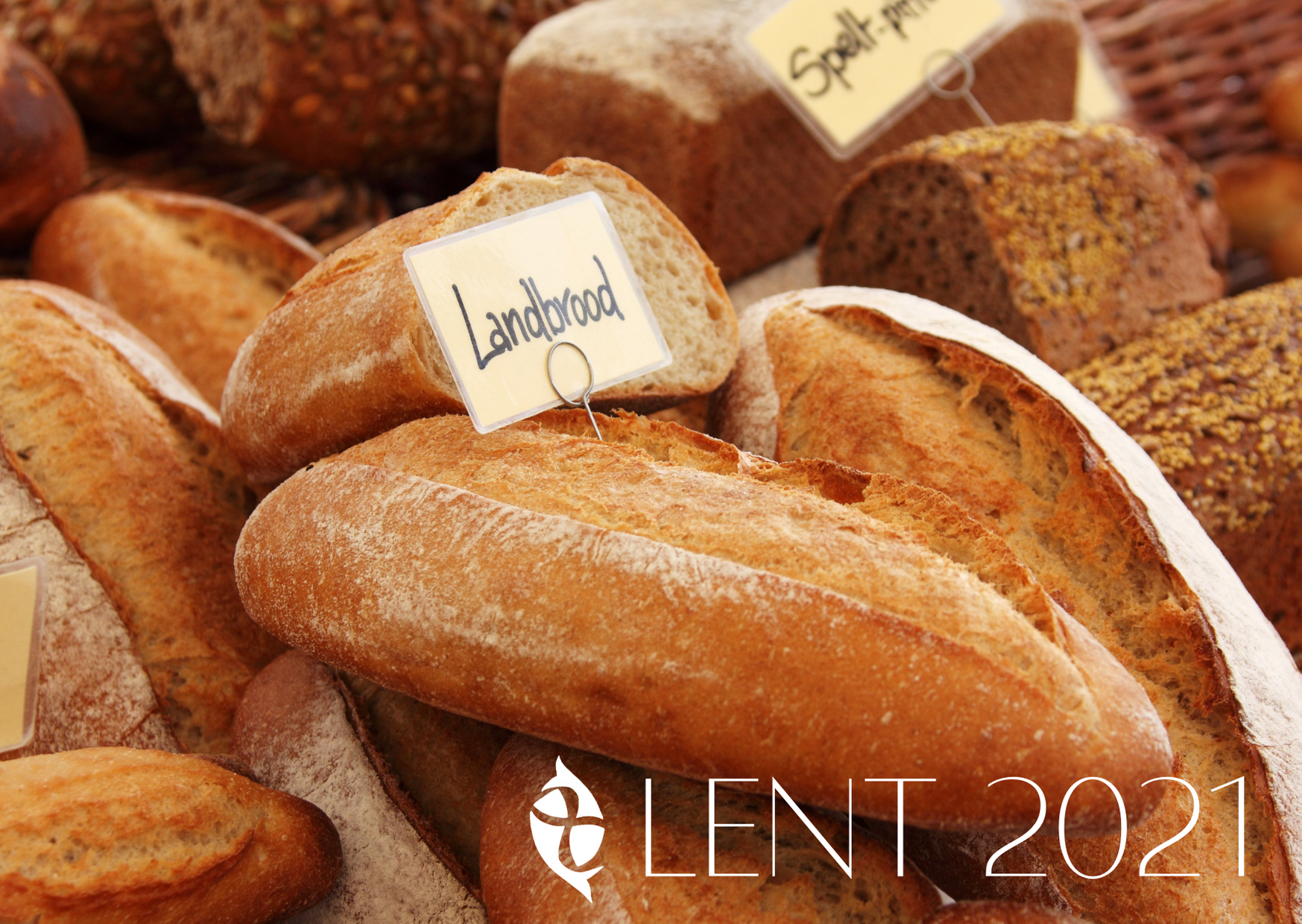Bible & Theology
Analyzing Biblical truth and theology: line-by-line analysis of scripture, applying Biblical ideas to modern questions, extrapolating life lessons from a Bible story, and more.
December 9, 2024 | By Isaac Oberman DC ‘26
Looking to Mary and Joseph, how can we prepare the way of the Lord this Advent season? By humbling ourselves as both Mary and Joseph did to accept their destinies and God’s will, we can be led to the many beautiful aspects of the Advent season. We must cut through the stress of daily life with moments of peace in knowing that God’s plan is good. By anchoring our trust in the Lord and in each other while in the midst of so much doubt, just as Mary and Joseph did, we prepare our hearts for the coming of Jesus.
November 14, 2024 | By Raleigh Adams M.A.R. ‘26
Rather, the person is called to be the irrational optimist, as Chesterton describes. She is to hate the world enough to change it, but love it enough to believe it worth changing. She is to strike moderation not through the mean of two vices in the Aristotelian sense, but to devote herself so wholeheartedly to the two extremes that the proper end is achieved.
October 22, 2024 | By Zeki Tan MY ‘25
Rowan Williams is the 104th Archbishop of Canterbury. He taught theology at Oxford and Cambridge and served as the Master of Magdalene College, Cambridge, from 2013 to 2020. Dr. Williams is also a poet and translator of poetry; he published his most recent edition of Collected Poems in 2022. In February 2024 he delivered the Taylor Lectures at the Yale Divinity School. I interviewed Dr. Williams while he was in New Haven to discuss his reflections on writing poetry, intellectual life, and how both enrich and are enriched by religious belief. This interview has been edited for length and clarity.
December 18, 2023 | By Gavin S YDS ‘25
When envisioning the ideal life at Yale—a perfect record of crafting perfect papers, always offering perfect contributions in class, and developing perfect relationships and networking connections, with perfect moments sprinkled in between—we seek a perfection so incredible to stand out among the perfectionists. Yet, the question lingers: How does joy fit into this journey? How can failure be tolerated?
December 11, 2023 | By Morgan Vannell MC ‘27
In the greatest of friendships, two come together in mutual pursuit of what it means to live out a life based on their shared love for God. Each helps the other along–at times leading and at times following, but always moving towards their mutual end.
November 13, 2023 | By Isaac Oberman DC‘26
Jesus reminds us that the worries of this world are not important. When we worry over our status, we put ourselves before Him and His grace. When we worry over our grades and over our job prospects, we lose a little more of our optimism and our hope. We lose track of our dreams because they are only fantasies. We also lose focus on Christ and His strength. The only thing that matters is accomplishing the task directly ahead.
November 7, 2023 | By Yoska Guta TD ‘26
What Jesus defines as unrighteous wealth in this passage is simply that which moths and vermin destroy, and thieves break in and steal—the temporary treasures of this earth. Jesus, therefore, is calling us, as His ambassadors, to love those around us with our temporary possessions and wealth so that “when [these temporary treasures] fail, they [the friends we make] may receive [us] into the eternal dwellings” (ESV). Though it may not be obvious, in other words, Jesus is literally calling us to use our resources and wealth to build up the kingdom of God by generously loving and giving to those around us.
October 23, 2023 | By David Woods TD ‘26
What does it mean for the logician to accept that they cannot condense every argument into a neat set of statements, parsing their predicate logic into digestible terms as they go? Or for the philosopher: what does it feel like to encounter a set of premises from which no a priori conclusion can be deduced? At a certain point, we, as individuals, have to acknowledge that not everything life throws at us will fit into a schema or heuristic we have for making sense of the world, and Christianity is no exception.
March 30, 2022 | By Michael Kielstra H’22
I first heard the story of the widow’s oil in Sunday school. Found in 2 Kings 4:1-7, it’s an astounding, heartwarming story of divine grace: a widow, utterly helpless and heavily indebted, appeals to Elisha and is miraculously given enough oil to pay off her creditors. What Sunday school teachers tend to gloss over, however, is the depth not only of the widow’s hopelessness but also of the cruelty of her creditors and of the society in which she lives.
March 11, 2022 | By Jonathan Chan
Forty days. That’s the length of time Christ spent in the Judaean Desert, fasting and praying in solitude. In the accounts contained in the gospels of Matthew, Mark, and Luke, the devil appears, bearing temptations that cut to the very heart of Jesus’ desires – to turn stones to bread to relieve His physical hunger, to summon angels to break His fall if He jumps from a cliff, and to worship the tempter in return for dominion over the kingdoms of the world.
March 4, 2022 | By Stephen McNulty PM ‘25
There is something about the desert — as a site of temptation, but also as one of opportunity — that pervades Biblical literature. After all, after the Lord delivers the Israelites from Egypt, their story isn’t one of “milk and honey,” per se. Instead, it’s a story of wandering.
November 7, 2021 | By Shi Wen Yeo MC ‘23
One of my favourite parts about Sunday mornings is walking into church and smelling the musty pews gently speckled with the mid-morning sun, and seeing the rows upon rows of pews, pews that are usually littered with hymnals and psalters. I have been doing some reflection on this recently. What does it mean that hymnals or psalters are usually distributed as separate books as opposed to the rest of the Bible?
April 3, 2021 | By Andrew Raines
They have anointed his body with oil
And veiled his face like a bride.
They have laid him in Joseph’s tomb...
April 2, 2021 | By Jeremy Begbie
Many of us are haunted by the memory of a missed opportunity. Near the end of Graham Greene’s novel, The Power and the Glory, an old priest sits in his cell the night before his execution. He looks back over his life, thinking of all the things he could have done and should have done, could have said and should have said. As Greene has it, “He felt like someone who had missed happiness by seconds at an appointed place.”
March 31, 2021 | By Shiwen Yeo MC ‘23
I grew up in a convent. People often joke that I seem nothing like a convent girl and are genuinely surprised whenever I say that I didn’t go to elementary school. And while I was not raised Catholic, I think that my convent years had a profound impact on my spiritual life, in little ways that really add up.
March 22, 2021 | By Bella Gamboa JE ‘22
Sorrow is a particularly relevant emotion during Lent, all the more so in a Lenten season that marks a year of profound hardship. In my own life, I find that sorrow is quite an accessible emotion. I only occasionally experience the overflowing exuberance that I feel I ought to have as a Christian, as one who has eternal hope and salvation in the death and resurrection of Jesus Christ—the events which Christians eagerly and repentantly await throughout these forty days.
March 20, 2021 | By Andrew Forrester
So why all the doom and gloom? If our Lord and Savior really is risen, and our sins have really been forgiven, why should we be sorrowful at all? During Lent, our preparation for the joy we take in the day of the resurrection, should we not be joyful since we know what’s coming?
March 17, 2021 | By Daniel Chabeda ES ‘21
All four biblical accounts of Jesus Christ’s life on earth contain the story of a woman who poured ointment on Jesus. The narrative starts at a dinner party in the town of Bethany:
Six days before the Passover, Jesus therefore came to Bethany... So they gave a dinner for him there…
March 16, 2021 | By Gabbi Zegers ‘21
“What then is Apollos? What is Paul? Servants through whom you believed, as the Lord assigned to each. I planted, Apollos watered, but God gave the growth… For no one can lay a foundation other than that which is laid, which is Jesus Christ.”
1 Corinthians 3:5-6,11
March 13, 2021 | By Ally Eidemueller BK ‘22
Today, let us reflect on Matthew 20:29-34:
“As they were leaving Jericho, a large crowd followed him. There were two blind men sitting by the roadside. When they heard that Jesus was passing by, they shouted, “Lord, have mercy on us, Son of David!” The crowd sternly ordered them to be quiet; but they shouted even more loudly…
March 8, 2021 | By Gabbi Zegers
“And Jesus came and said to them, ‘All authority in heaven and on earth has been given to me. Go therefore and make disciples of all nations, baptizing them in the name of the Father and of the Son and of the Holy Spirit, teaching them to observe all that I have commanded you. And behold, I am with you always, to the end of the age.’” Matthew 28:18-20
March 5, 2021 | By Matias Sur
Our Lenten journey is well underway, which is why I want to offer a quick reflection on the possible temptations that may arise—or may have already risen—in the middle of our respective paths toward Easter Sunday.
At the risk of being reductive, if you had to pick between these two persons reflecting on their Lenten journey, which would you pick?
Feb 23, 2021 | By Stanley Hauerwas, Gilbert T. Rowe Professor Emeritus of Divinity and Law.
I have always thought that Lent is a dangerous time for Christians. This time in the church year I fear tempts us to play at being a Christian. We are to discipline our lives during Lent in order to discover and repent of those sins that prevent us from the wholehearted worship of God. That is a perfectly appropriate ambition, but we are not very good at it. We are not very good at it because in general we are not very impressive sinners.
Feb 18, 2021 | By Serena Puang DC ‘22 +1
On a good day (when everything is going smoothly, I’m not on a strict deadline, and I’ve gotten plenty of sleep), it’s easier to cut other people slack when they’re being less than their best selves. A person I’m meeting with is 40 minutes late? It’s okay, I’ll just get some other work done. The lady was mean to me at the post office? Hope her day gets better. Drunk guy falls asleep on me on the metro Sunday morning? Hey buddy, this is kinda weird, but you’re clearly not doing this on purpose. Be careful getting home, okay?
Feb 16, 2021 | By Andrew Raines Duke ‘21
Throughout the year, the Church follows the whole course of Jesus’ life from birth to ascension. We do so because we believe Christ’s life brings us life. If we stumble along in his footsteps, our lives will be changed for the better.
So, Lent is the time when Christians prepare for sharing in Jesus’ resurrection on Easter by first reliving his 40 days in the desert. We walk with him through his experience of deprivation and temptation in the wilderness (Luke 4:1–13; Matthew 4:1-11). .
Feb. 5th, 2021 | By Luke Bell PC ‘23
Farming is an expertise. Having lived on a farm in northeast Georgia, I speak from experience. Ever since I can remember, Angus cows, Massey Ferguson tractors, and southern rodeos have always been as commonplace to me as walking. Farming, however, is more than animals and machinery.
Feb. 5th, 2021 | By Daniel Chabeda ES ‘22
He is crying, quietly because he’s already a spectacle lying in the mulch beside the only path to the laundry room. You wish you didn’t recognize him, but you already made eye contact through his curtain of tears. Maybe it’s an orgo midterm again, you think charitably.
Feb 5th, 2021 | By Bella Gamboa JE ‘22
Longing is a familiar feeling. We miss those we love who are far away from us; we yearn for a return to normalcy and the end of this pandemic; we literally, physically hunger as every few hours our bodies require additional sustenance. In Psalm 63, King David of Israel, the psalmist according to the psalm’s title, captures in beautiful but fraught language his longing—for God.
Feb 5th, 2021 | By: Shayley Martin DC ‘22
You may know the God who led an entire people out of slavery by splitting a sea. Or who made a couple loaves of bread and some fish into a meal for more than 5,000 people. But there’s another story that you don’t hear about as often. It’s about the same God, but for me it makes the whole rest of the Bible hit different. I want you to meet the God of exploding cucumbers.






























August 14, 2025 | By Douglas Bunting - Regent University
Throughout Scripture, our lack of trust in God’s generosity consistently leads to a prideful attempt to seize control, defining good and evil as we see fit. Pharaoh exemplifies this mistrust, and this poem uses him as a foil against the whole of Scripture and its call to trust in God's provision.